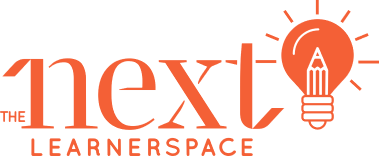Week 5 – The Future
Week 5 – The Future
As we start developing our projects and gradually apply our views, beliefs and ideas to generative learning, it is time to develop a shared vision of the future of learning.
It is often said that we are preparing our students for jobs that have not yet been created and for a future that is uncertain and unknown. There are some principles to future of learning that are already irrevocably set by the changes in the learning paradigm. We will try to discern them and put together in a vision that will act as a signpost for our shared journey.
Attempting to identify the main elements of the future of learning is a daunting challenge. There are a multitude of factors at play, many of which we have reviewed already, such as the impact of technology, and predictions and forecasts for the future of learning are as wide ranging as they are inconsistent.
Our goal this week is to try to come up with a vision based on documented and well-researched trends.
OECD Future of Education and Skills 2030
We invite you to explore an interactive site developed by the Organization for European Cooperation and Development, the organization responsible for the PISA evaluation on the future of education and skills.
It is a fascinating and thoroughly researched website that can provide valuable insights on trends that will shape education.
Future Skills for the 2020s
The following document is the executive summary of an extensive report produced by GlobalEduFutures, an International Thinktank that applies systems thinking to the future of education. It is a concise and impressive roadmap of skills and learning for the immediate future. We encourage you to reflect on the various scenarios that are laid out.
A Day in the Life of a Teacher in 2035
Fiction has always been a powerful catalyst for visioning, since it relies mostly on our imagination, a precursor to creativity, and renders us free of many of the constraints of real-life implementation. It is in that context that we invite you to engage in the following exercise.
It is the year 2035, and you are an educator with primary responsibility for student learning.
Write a one-page journal entry of your day, being as descriptive and as detailed as possible, including activities, interactions with students and other stakeholders, description of places and spaces, as well as anecdotes and stories.
Please send the journal entry as an attachment to gabriel.rshaid@thelearnerspace.org before the end of Monday, May 30.
Developing ideas for the Team Projects
Our next stage in the project development process involves coming up with a preliminary set of ideas that narrows the theme to specific possibilities for your project. Find a way to interact, either asynchronously or synchronously with your team, in order to come up with a list of at least five ideas for your project.
When you develop these ideas, bear in mind what you are passionate about and what the perceived needs are so that the ideas can address both.
There are no wrong ideas or bad ideas, this is an exercise in creativity, and we will come up with a single idea in time.
Examples for the level of detail of the idea that is appropriate at this point.
Inadequate
Students become more aware of the importance of healthy eating.
Students engage in more physical activity.
Adequate
A student project to provide nutrition information on cafeteria food to promote greater healthy eating awareness.
Periodic fitness breaks are instituted during the school day to increase students´ physical activity.
Please select the appropriate team below and submit your ideas.

